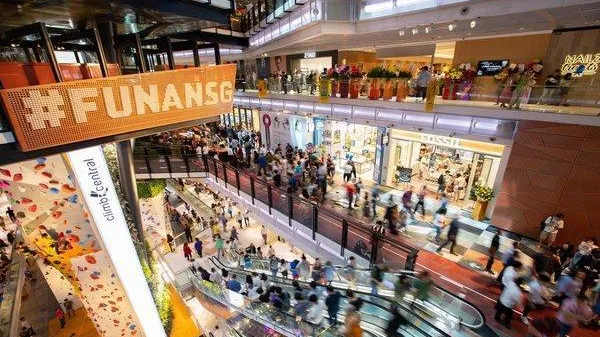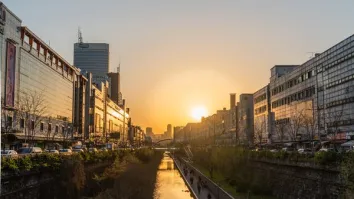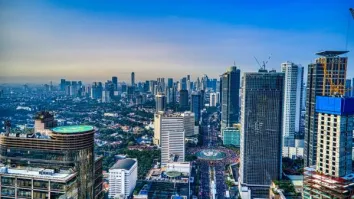
How could the F1 race impact Singapore’s retail property market?
Retail rents inched up 1.5% in September as tourist inflow drove retail spending.
Building on the removal of mobility restrictions in the previous quarter, a Knight Frank report says prime rents of retail space remained on an upward trend in Q3 2022 across all regions in Singapore.
The average island-wide gross rental increased 1.5% q-o-q to S$25.60 psf pm, as retail spending continued to be driven by employees returning to the workplace and the burgeoning inflow of tourists (Exhibit 1).
Here’s more from Knight Frank:
After a two-year hiatus, leisure and entertainment activities are back with the lifting of curbs. The re-emergence of live music in F&B venues as well as carnivals and bazaars lined up along the streets were welcomed and patronised by many, promoting retailers and entertainment venues in tourist hotspots such as Clarke Quay and Orchard Road, as well as in other locales such as the all-day Central Beach Bazaar at Sentosa, the Carnival by the Bay at Marina Bay, and the outdoor cinema event Films At The Fort in Fort Canning.
Additionally, the pace of meetings, incentives, conventions and exhibitions (MICE) events held in Singapore surged without restrictions on group sizes, event capacity limits or zoning requirements. With the nation hosting the Formula One (F1) race, the Singapore Tourism Board (STB) reported that a series of MICE events were scheduled to coincide with the Grand Prix, with the total volume amounting to levels similar to that of the pre-Covid days.
With this year’s F1 setting a new record for the highest attendance in the race’s 13-year history, entertainment, lifestyle and F&B outlets benefitted from the slew of shoppers and diners providing a much-needed shot-in-the-arm, after the two years of pandemic.
Retail sales rose by 17.5% to a combined S$6.8 billion in July and August 2022 when compared to the same period a year ago (Exhibit 2). Not counting February 2022, monthly retail sales since November 2021 were above the average sales level of about S$3.2 billion reported throughout pre-pandemic 2019.
Demand from locals as well as the return of tourists generated a resurgence of retail sales activity in Q3. International visitor arrivals (IVA) continued to increase, totalling some 3.7 million from January to September 2022, with the highest volume to-date of 2.2 million recorded in Q3 compared to the 246,145 and 1.3 million in Q1 and Q2 2022 respectively.
As such, the retail sales index (RSI) (excluding motor vehicles) maintained uninterrupted y-o-y growth for six consecutive months, with the latest month of August 2022 registering an index of 101.8, a 13.0% increase from 90.1 in the same month last year. This was primarily attributed by Wearing Apparel & Footwear, Food & Alcohol, and Department Stores industries which reported at least a 35.0% y-o-y growth during the month as shoppers returned to stores and malls in revenge spending sprees. Without disruptions from mobility restrictions, the retail sector has been steadily improving month after month.
Out with the old, in with the new
As Singapore normalises and adjusts to life after the pandemic, the retail market continues to evolve, with the pace of change accelerating each month. Department stores have lost their dominance in malls giving way to more diverse themed lifestyle stores catering to a broad range of households. Brands such as Daiso, Don Don Donki, Decathlon as well as Muji, are notable examples that are quickly establishing pre-eminence in malls with the ability to attract a wide spectrum of consumers. Demand for such stores will drive expansion plans of these key players in Singapore over the next few years.
In addition to the online retail channels that grew out of the pandemic, brick-and-mortar stores need to step up its experiential element to engage consumers with sensory touchpoints that cannot be duplicated through digital platforms or traditional shopping. Such transformations in mall retailing models place greater importance on the types of anchors that are able to curate the experiences necessary for mall owners to remain relevant in an ever changing retail landscape.
Market outlook
Key events such as the 11.11 Sale, Black Friday, Christmas, as well as New Year’s Eve will boost and support retail spending in the final lap of the year. Stable and healthy growth in tourist arrivals and Singapore seemingly able to return to pre-COVID normalcy point to sustainable recovery for the retail market, and prime retail rents are on course to grow by the earlier projection of 2% to 4% for the whole of 2022.
However, uncertainties loom with inflationary pressures on the economy which may threaten market stability. In order to take advantage of the nascent recovery that has built up from April 2022, retailers should continue to seek value enhancements and improve user platforms in order to differentiate their consumer offerings in the wake of external volatilities as well as a new wave of local COVID-19 infections that could unhinge the delicate balance of the current state of recovery.



















 Advertise
Advertise





